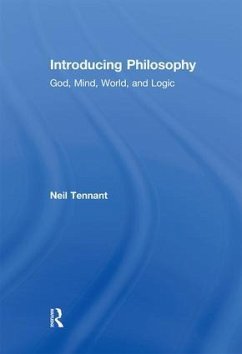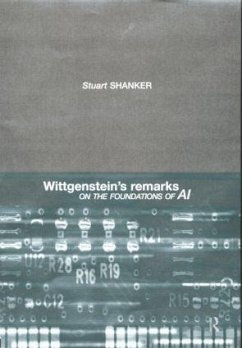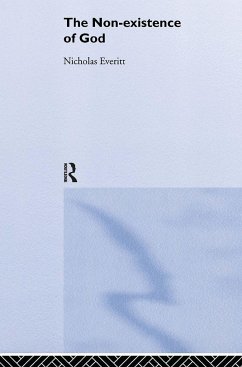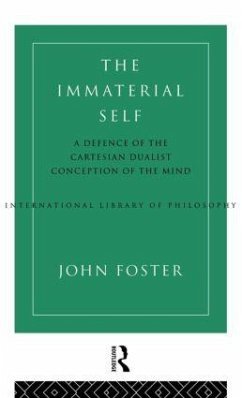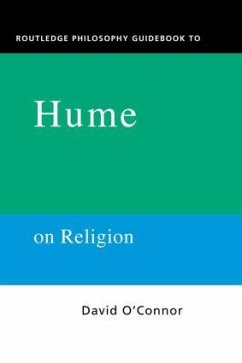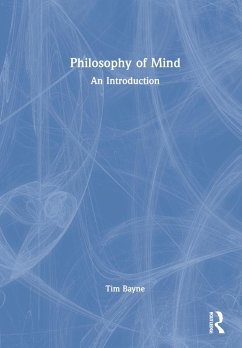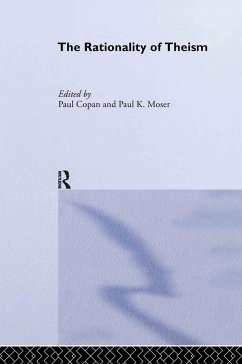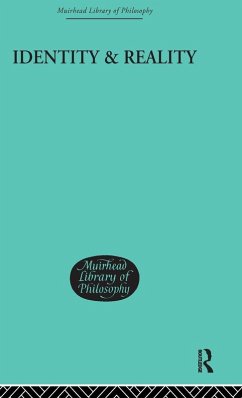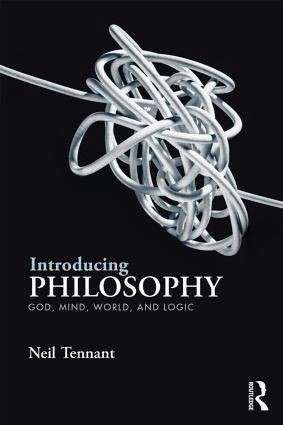
Introducing Philosophy
God, Mind, World, and Logic
Versandkostenfrei!
Versandfertig in 1-2 Wochen
56,99 €
inkl. MwSt.
Weitere Ausgaben:

PAYBACK Punkte
28 °P sammeln!
Written for any readers interested in better harnessing philosophy's real value, this book covers a broad range of fundamental philosophical problems and certain intellectual techniques for addressing those problems. In Introducing Philosophy: God, Mind, World, and Logic, Neil Tennant helps any student in pursuit of a 'big picture' to think independently, question received dogma, and analyse problems incisively. It also connects philosophy to other areas of study at the university, enabling all students to employ the concepts and techniques of this millennia-old discipline throughout their col...
Written for any readers interested in better harnessing philosophy's real value, this book covers a broad range of fundamental philosophical problems and certain intellectual techniques for addressing those problems. In Introducing Philosophy: God, Mind, World, and Logic, Neil Tennant helps any student in pursuit of a 'big picture' to think independently, question received dogma, and analyse problems incisively. It also connects philosophy to other areas of study at the university, enabling all students to employ the concepts and techniques of this millennia-old discipline throughout their college careers - and beyond.
KEY FEATURES AND BENEFITS:
-- Investigates the philosophy of various subjects (psychology, language, biology, math), helping students contextualize philosophy and view it as an interdisciplinary pursuit; also helps students with majors outside of philosophy to see the relationship between philosophy and their own focused academic pursuits
-- Author comes from a distinguished background in Logic and Philosophy of Language, which gives the book a level of rigor, balance, and analytic focus sometimes missing from primers to philosophy
-- Introduces students to various important philosophical distinctions (e.g. fact vs. value, descriptive vs. prescriptive, norms vs. laws of nature, analytic vs. synthetic, inductive vs. deductive, a priori vs. a posteriori) providing skills that are important for undergraduates to develop in order to inform their study at higher levels. They are essential for further work in philosophy but they are also very beneficial for students pursuing most other disciplines
-- Is much more methodologically comprehensive than competing introductions, giving the student the ability to address a wide range of philosophical problems - and not just the ones reviewed in the book
-- Offers a companion website with links to apt primary sources, organized chapter-by-chapter, making unnecessary a separate Reader/Anthology of primary sources - thus providing students with all reading material necessary for the course
-- Provides five to ten discussion questions for each chapter, helping instructors and students better interact with the ideas and concepts in the text
KEY FEATURES AND BENEFITS:
-- Investigates the philosophy of various subjects (psychology, language, biology, math), helping students contextualize philosophy and view it as an interdisciplinary pursuit; also helps students with majors outside of philosophy to see the relationship between philosophy and their own focused academic pursuits
-- Author comes from a distinguished background in Logic and Philosophy of Language, which gives the book a level of rigor, balance, and analytic focus sometimes missing from primers to philosophy
-- Introduces students to various important philosophical distinctions (e.g. fact vs. value, descriptive vs. prescriptive, norms vs. laws of nature, analytic vs. synthetic, inductive vs. deductive, a priori vs. a posteriori) providing skills that are important for undergraduates to develop in order to inform their study at higher levels. They are essential for further work in philosophy but they are also very beneficial for students pursuing most other disciplines
-- Is much more methodologically comprehensive than competing introductions, giving the student the ability to address a wide range of philosophical problems - and not just the ones reviewed in the book
-- Offers a companion website with links to apt primary sources, organized chapter-by-chapter, making unnecessary a separate Reader/Anthology of primary sources - thus providing students with all reading material necessary for the course
-- Provides five to ten discussion questions for each chapter, helping instructors and students better interact with the ideas and concepts in the text





